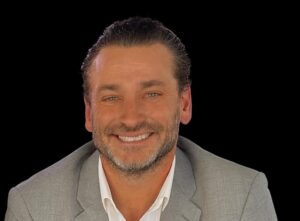At 6 AM, long before the city stirs to life, a quiet army fans out across office buildings, medical centers, and government facilities in Washington, D.C., Maryland, and Virginia. Uniformed but unobtrusive, their work is mostly invisible; floors gleam, HVAC systems hum efficiently, plumbing flows as it should. Behind this symphony of functionality stands Hermes Building Services, a company that has built its business on janitorial care and system upkeep, and on the trust of over a thousand clients who have chosen to rely on it again and again.
In a sector often dismissed as transactional, Hermes has bet on relationship building as its core proposition. Subsequently, this bet is paying off in a commercial property maintenance industry grappling with aging infrastructure, labor shortages, and rising expectations from tenants and owners alike. At the center of it all is Gabriel Yacoub, the company’s founder and CEO, whose strategy for growth has hinged less on expansion and more on refining a deceptively simple idea: consistency matters.
“People think commercial maintenance is about fixing things when they break,” Yacoub said in a recent interview. “What they do not see is how much of the cost, sometimes 30 percent or more, comes from preventable failures due to deferred maintenance. We do not just mop floors. We manage risk.”
A Market at a Crossroads
The commercial property maintenance industry is undergoing a recalibration. The commercial property maintenance industry is experiencing significant growth. According to Fortune Business Insights, the U.S. facility management market is projected to expand from $259.7 billion in 2022 to $384.4 billion by 2030, reflecting a compound annual growth rate (CAGR) of 5.5%. This upward trend underscores the increasing recognition of maintenance as a strategic component in enhancing long-term asset performance, rather than merely a routine operational task.
Moreover, that awareness is becoming more urgent. As of 2024, the average commercial building in the U.S. is over 53 years old. Deferred maintenance has become a liability not only in terms of cost but also in attracting and retaining tenants who expect seamless, high-performance facilities. The American Society of Civil Engineers has routinely rated U.S. building infrastructure in middling grades, raising concerns about long-term resilience and energy inefficiency.
Within this context, Hermes Building Services has distinguished itself with a model that integrates operational care with long-term planning. Its services include real-time cleanliness audits, condition reporting, and direct client feedback; these features are not yet standard in many parts of the industry but are becoming increasingly sought after. As a result, these efforts allow clients to make informed decisions and reduce both cost and uncertainty over time.
Redefining the Client Relationship
In an industry where providers often compete on price and scope alone, Hermes took a different route. Rather than positioning itself as a conventional service contractor, the company has embraced a partnership model, offering an integrated maintenance solution that includes janitorial, HVAC, plumbing, electrical, and outdoor services. This method is designed to reduce the operational friction that often comes with managing multiple vendors.
“We are not a vendor, we are an extension of the property team,” Yacoub said. “If something fails, they do not call five companies. They call us.”
Furthermore, this structure has proven especially valuable in complex commercial environments, such as government buildings and data centers, where continuity and responsiveness are essential. Hermes has seen much of its growth come from referrals and multi-year agreements, a rarity in a sector where short-term contracts and commoditized services are the norm.
Since 2019, Hermes has served more than 1,000 clients, primarily across the DMV region. Additionally, the company has achieved approximately 40 percent year-over-year revenue growth and projects to exceed $5 million in 2025, driven largely by retention and expanding relationships with asset managers. These partnerships are based not just on service delivery, but on consistent communication and shared performance metrics.
Expanding with Purpose
While some competitors grow through franchising or mergers, Hermes has chosen a slower but more intentional path. Its operations now span Florida, Pennsylvania, North Carolina, South Carolina, and West Virginia in addition to its home base in the Washington D.C. area. This footprint follows the needs of property owners and managers seeking uniform service across multiple geographies.
The company has also committed to building brand visibility through local engagement. One example is its planned involvement in the Autism Awareness Invitational in Spring 2026, a move aligned with its long-term goal of supporting community-centered causes. Yacoub notes that the company’s public-facing commitments reflect the same values it applies to internal operations: reliability, visibility, and care.
“Trust does not just come from clean buildings,” Yacoub said. “It comes from being visible, reliable, and invested every day.”
As Hermes looks ahead, it continues to refine its client-focused service structure while exploring new ways to improve transparency and deliver measurable outcomes. In addition, while the company has not formally announced investments in predictive technologies, it has expressed interest in exploring tools that help identify performance issues before they escalate.
A Model for the Future
As the U.S. commercial property maintenance market prepares to cross the $200 billion threshold, the question is not whether the industry will grow but how companies will adjust to meet changing expectations. Hermes Building Services may not be the largest player, but its model, slow, steady, and service-focused, offers a glimpse into a future where maintenance is seen not as a cost center but as a business strategy.
For over 1,000 clients, many of whom have been with the company for years, the appeal is clear: fewer complaints, longer equipment life, and properties that reflect the professionalism of those who own or occupy them.
In a market often focused on appearances, Hermes has bet on what lies underneath: ducts that work, bathrooms that do not leak, and HVAC systems that do not quit at 4 PM on a summer Friday. Consequently, it is a bet that has paid off so far.
“Buildings do not speak,” Yacoub said with a half smile. “But they remember who takes care of them.”








